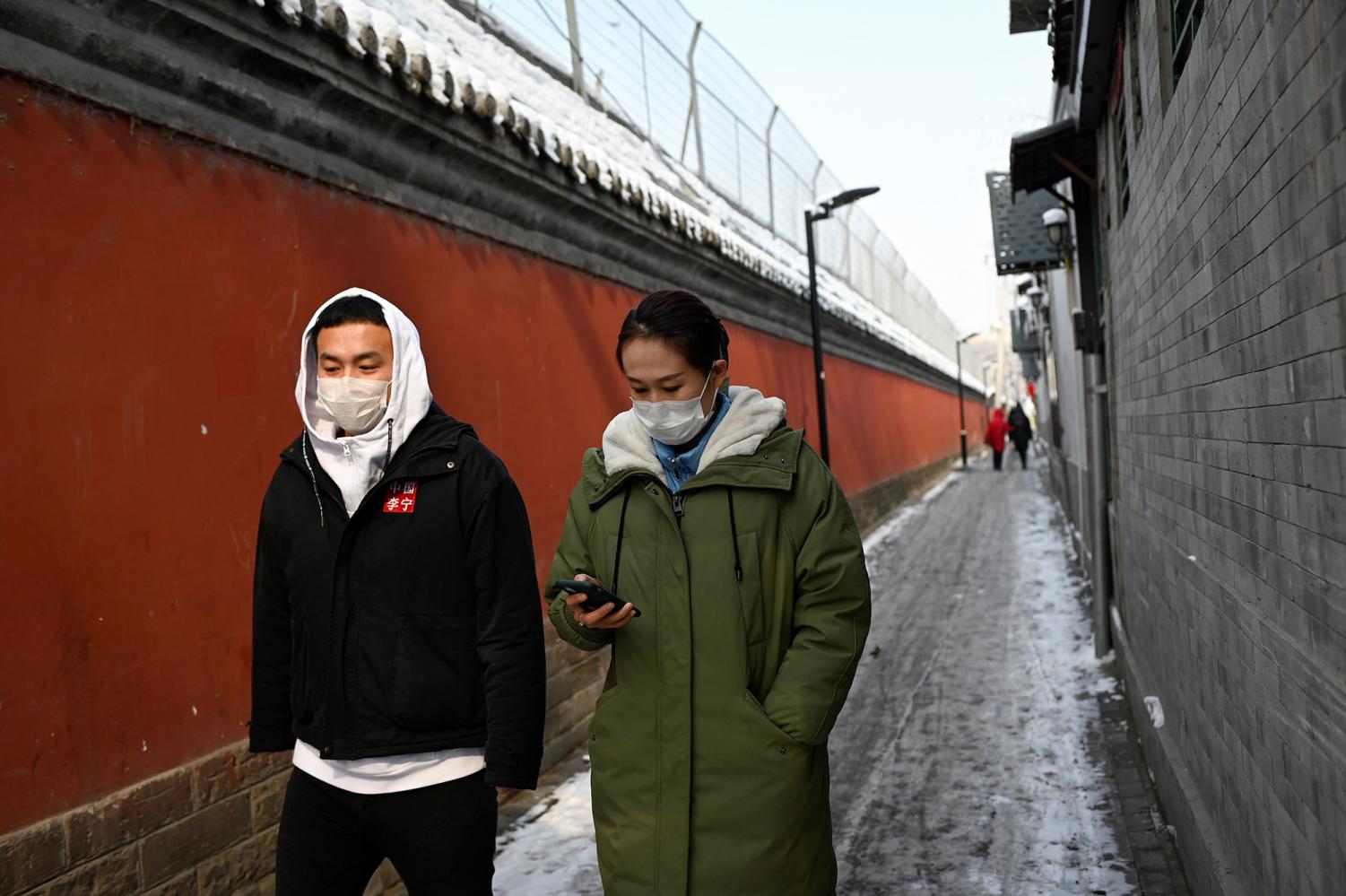An Economic Epidemic
The latest coronavirus has the capacity to drastically cripple the international economy if not contained soon.
PHOTO | TNS
South Korean medical workers wearing protective gear carry samples as they visit a residence of people with suspected symptoms of the COVID-19 coronavirus, near the Daegu branch of the Shincheonji Church of Jesus in Daegu on Feb. 27.
The World Health Organization declared the newest coronavirus, COVID-19, a “public health emergency of international concern.” But the virus is not simply a global health concern—it is a global economic crisis as well. With death tolls rising and confirmed cases spreading internationally, people across the globe are fearing for their lives. However, they also need to be fearing for their wallets. COVID-19 is on track to leave the global economy in ruins and with little hope of a quick recovery.
COVID-19 first originated in Wuhan, China Dec. 31, 2019, according to WHO. It is a coronavirus, which is a large family of viruses that cause respiratory diseases and infections in humans and mammals, including Severe Acute Respiratory Syndrome. COVID-19 is mainly spread through contact with small droplets from the nose or mouth of an infected person, according to WHO, and around one out of every six people who get COVID-19 becomes seriously ill. As of Mar. 2, 89,073 people have been infected globally, and 3,048 have died as a result of the virus, according to Johns Hopkins University Center for Systems Science and Engineering. As the virus spreads, more businesses are closing and more stocks are falling internationally.

People wearing protective face masks walk through an alley in Beijing on Friday, Feb. 7, 2020. (AFP/Getty Images/TNS)
COVID-19 has caused tourism and consumerism to take a sharp decline. People are more likely to stay home during a prominent illness outbreak, which prevents them from shopping, traveling and working. As a result, this limits consumer demand and causes damage to overall market value and profit earnings. The outbreak of COVID-19 occurred during the Chinese Lunar New Year holiday, which is a peak time for consumption in China. Chinese consumers spent over one trillion yuan ($145 billion) for shopping, dining, entertainment and travel in 2019 during the week-long holiday, according to the Ministry of Commerce. However, extensive travel restrictions and COVID-19 fears caused people to go out and spend much less than in previous years. The spending that would have taken place won’t be recouped later. This is a direct hit to Chinese businesses across the board and is a likely predictor of the impact that COVID-19 will have on international businesses. If the virus continues to spread internationally, it is feasible to conclude it will have a similar influence on everyday spending internationally.
Travel concerns are also especially prominent as a result of COVID-19, and airlines are taking a hit. British Airways owner IAG and Finland’s Finnair issued profit warnings to investors on Feb. 28, citing travel disruptions caused by the virus. Shares of IAG were down eight percent and shares of Finnair were down six percent as of Feb. 28, according to Yahoo Finance. Tourism is a massive industry in today’s world, generating ten percent of the world’s global economic activity in 2018, according to the World Travel and Tourism Council. A large disruption to that market, such as COVID-19, has the potential to cause an unprecedented amount of damage to every market sector and, subsequently, every consumer on Earth.
Increased globalization has caused markets to become increasingly interconnected with each other and more susceptible to international economic damage. Globalization has encouraged companies to build supply chains that cut across national borders, making economies much more interconnected. For example, Apple and Hyundai have manufacturing plants in China that distribute goods globally. However, those plants and countless others across the country have halted operations or closed down altogether as a result of the COVID-19 outbreak. China is the second-largest economy in the world, according to The World Bank, and is an epicenter for global supply chains. As the virus continues to interrupt manufacturing and supply in China, all of the countries that benefit from its exports will suffer. The interconnectedness of the global economy relies heavily on Chinese manufacturing, and without it, markets on every habited continent are exposed to the unparalleled economic downturn.
The SARS outbreak in 2003 had a disastrous effect on global economics, and COVID-19 is likely to be worse. The SARS outbreak, a similar coronavirus outbreak that originated in China in 2003, cost the global economy $40 billion, according to the National Institute of Health. Consumer spending sank during the outbreak, just as it has during the COVID-19 outbreak. However, the cost of this virus is going to be much higher if not contained. In 2003, China accounted for only four percent of the world’s Gross Domestic Product, according to the National Bureau of Statistics of China. In 2019, the country accounted for a whopping 17 percent of the world’s GDP. A disruption of Chinese markets today has much larger global implications than it did in 2003 and is much more likely to damage the world’s economy on a monumental scale. Chinese economy also can’t recover as quickly as it did after the SARS outbreak. Since the financial crisis in 2008, China’s economy has been crippled. It is, therefore, less able than it was in 2003 to turn to rapid manufacturing push to rebound after the SARS-caused disruption. Without the ability to bounce back from a widespread virus like COVID-19, China puts global markets and trade at risk of massive failure.
COVID-19 is here. It’s scary. It’s going to affect the economy whether or not it is contained quickly. However, to avoid a global economic crisis of epic proportions, world leaders need to put aside political differences and nationalism to work with epidemiologists and economic experts and coordinate a global response to soften the blow that the virus will inevitably have on the world economy. COVID-19 will damage the public’s health and their pocketbooks if they don’t.





Staffer • Mar 3, 2020 at 11:20 AM
this is good 🙂